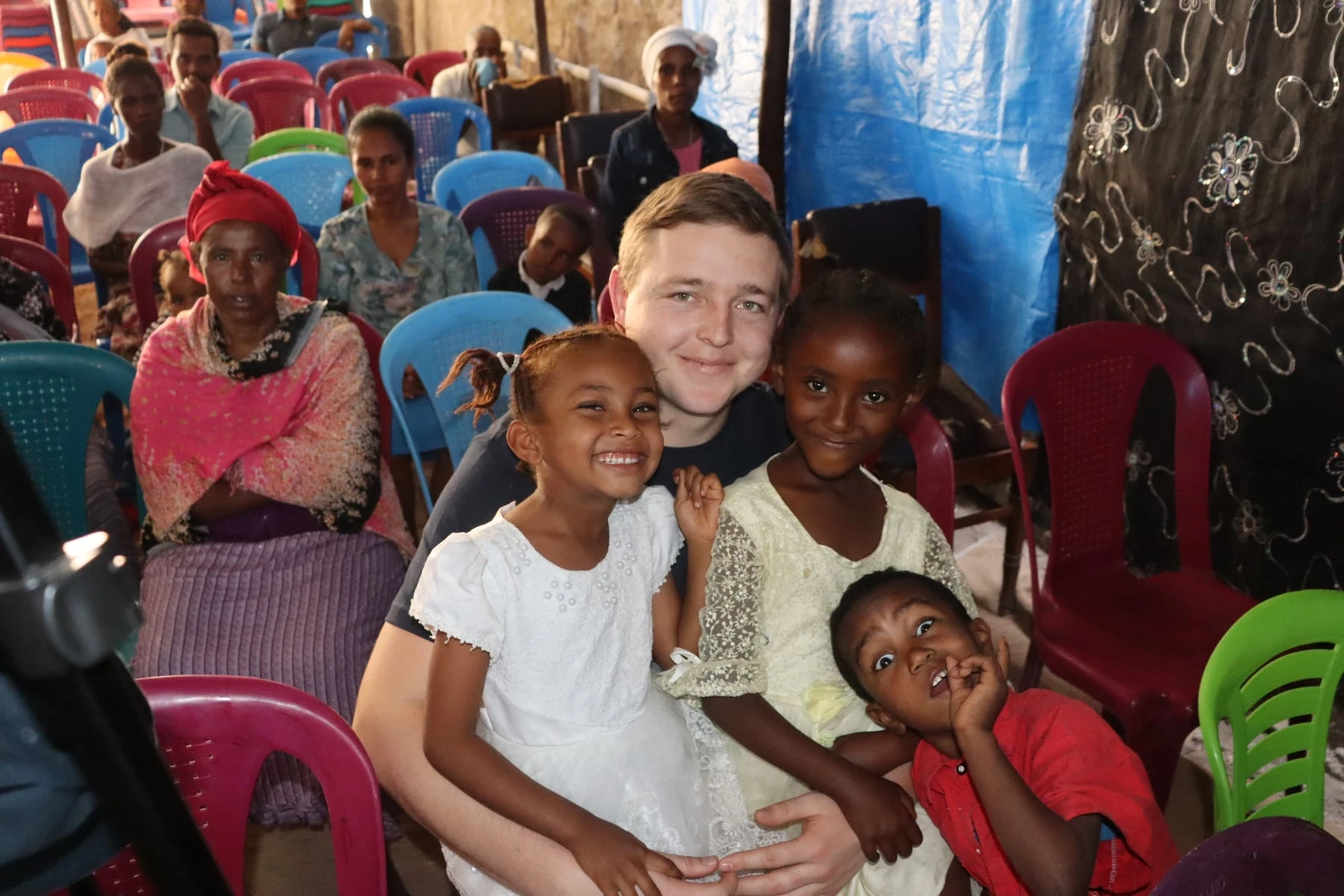What is success like for a missionary?
12 December 2022
Life of one person is not enough to put a great plan of the Creator into effect. But everyone who has responded to God’s calling has own time and place for own mission.
The history of missionary work knows ministers who have not seen results of their work on the earth. But were they fruitless? Who really evaluates one’s life and its effectiveness?
The beginning of the 20th century. The missionary William Leslie and his spiritual heritage in almost a hundred years.
“Have I missed my true calling? Could I be more effective for God, if I were serving at a different place? What if I have not recognized God’s calling?
WIlliam Leslie (1868-1935), a medical missionary from Canada, and his wife dedicated 17 years to their ministry in Africa, though they never say any results of their ministry. Moreover, Leslie was convinced that he failed, and remained frustrated till his death.
In 1905, Willian and Clara were pioneer missionaries in Kuilo, Angola. There they had to live through many difficulties from hurricanes to invasions of buffalos and ants.
They cleaned a small area in Vanga (Congo) from the jungles, where many leopards live, along the Kwilu river. This tiny plato became a new missionary station of Leslie.
The missionary held Bible lessons, taught children to read and write, accentuating the importance of education, and shared Bible stories. Due to Leslie, these villages received the first educational system.
In 2000, in 80 years, a team of missionaries from America headed by Eric Ramsey encountered in the remote jungles a network of growing ‘living’ churches located along the Kwili river across Vanga. That was the place where a missionary station of Dr Leslie was operating.
The team undertook a 2.5 hour flight on an amphibian plane to make it to Vanga. From there, the missionaries had to go on foot around a mile to the Kwile river and cross this barrier 800 meters wide in narrow canoes. Then they had to walk around 15 kilometers into the jungles to make it to the first village of the Yansi tribe.
Ramsey was sure that the Yansi people don’t know Jesus. However, a pleasant surprise was waiting for him.
There were churches within a radius of 25 kilometers. In one of the villages, the missionaries found a stone “cathedral,” which could fit a thousand people.
“Having arrived there, we discovered a network of multiplying churches, scattered across the jungle. Each village has its own ‘gospel’ choir, though they, of course, did not use that terminology. They write hymns, which they popularize from village to village. There are no Bibles in the Yansi language. They use Bibles in French. That is why preachers and Bible teachers of this tribe have to be fluent in French.”
If only Leslie and his missionaries knew that…
The beginning of the 21st century, missionary Evhen Yevva: “There is not only the ministry of harvest, but also the ministry of sowing”
“You come on a mission and after a while people begin to accept Christ after your preaching, because of your ministry, and after a while you create one church after another.”
“Have you heard such a myth about missionary work?” – asks Yevhen Yevva, a missionary from Cambodia with 18 years of service experience.
There is not only the ministry of the harvest. Missionaries must understand that in order to, figuratively speaking, harvest, one must first sow and then water: “I planted, Apollos watered, but God has been making it grow” (1 Cor. 3:6).
We should know that missionaries do not convert people to God – the Lord does, He decides who will be His vessel in this work.
“Unfortunately, conferences and seminars mostly talk about the importance of the harvest ministry, very little is said about the sowing ministry or the ministry of making disciples. And many missionaries go on a mission precisely to gather, not to sow. They were taught it, they were prepared for it, it was brought up in them. And when, after 3-5 years of ministry, only two people repented, and one person was baptized, such missionary becomes discouraged and “missionary” depression sets in,” says missionary Yevva.
Such a state will surely give way to the thought: “I am an unsuccessful missionary.”
But success is not measured by the number of baptized people, but by dedication to the work that the Lord has given. God does not send everyone to the harvest – it is important to learn this truth, says a modern missionary.
The first disciples of Christ gathered what they did not work for (John 4:38). Who sowed? Maybe the disciples of John the Baptist, John himself, or maybe Jesus Christ sowed and sent the disciples to reap the harvest?
So it is the same in modern missionary work. One minister can work for several years without visible results. But, another will come and reap the harvest after him: the repentance of people and the opening of churches.
Then who is successful in the ministry? In the eyes of God, they both: “Even now the one who reaps draws a wage and harvests a crop for eternal life, so that the sower and the reaper may be glad together”. (John 4:36).
Some missionaries are replaced by others, peoples and eras change, but God remains the same and calls to fulfill the Great Commission, always asking: “Whom shall I send? and who will go for Us? (Is. 6:8).
Written by CITA press center
